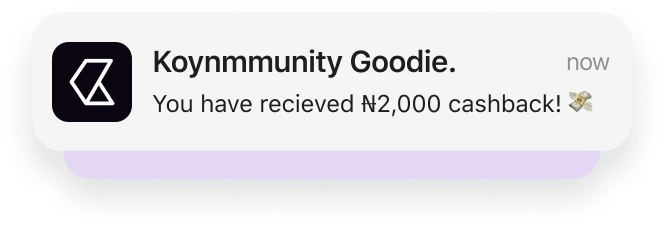Is Bitcoin a Public or Private Blockchain?

Since its creation in 2009 by Satoshi Nakamoto, Bitcoin has transformed the way we think about money, decentralization, and financial freedom. However, despite its popularity, many people are not sure whether Bitcoin is a public or private blockchain. If you are among this number, you are in the right place!
In this article, we will break down what private and public blockchains are and their key differences. We will also identify where Bitcoin fits in. Just make sure you stick with us until the end, and you’ll have a clear understanding of Bitcoin’s true nature in the blockchain world.
KEY TAKEAWAYS:
- A blockchain is a distributed ledger technology (DLT) that records transactions in a secure, immutable, and transparent way.
- A public blockchain is an open network that anyone can join, read, and participate in.
- Private blockchains are restricted and controlled by a central entity.
- Bitcoin is a public blockchain, but the confusion about it being private stems from the fact that transactions do not reveal your personal identity.
What Exactly Is a Blockchain?
A blockchain is a distributed ledger technology (DLT) that records transactions in a secure, immutable, and transparent way. Each transaction is grouped into a block, and once verified, that block is added to a chain of previous transactions. There are two major types of blockchains: public blockchains and private blockchains. Let us explore them in detail.
What Is a Public Blockchain?
A public blockchain is an open network that anyone can join, read, and participate in. It is fully decentralized, meaning that no single entity has control over the system. Here are some key features of a public blockchain:
- Transparency: All transactions are visible on a public ledger.
- Security: Control is spread across thousands of nodes, making it difficult to manipulate the system.
- Trustlessness: The environment is trustless as transactions are verified through cryptographic consensus mechanisms like proof-of-work (PoW) or proof-of-stake (PoS).
Read Also – Proof-of-Stake (PoS) Explained
What Is a Private Blockchain?
Unlike public blockchains, private blockchains are restricted and controlled by a central entity. Participation is limited to authorized users, making them ideal for businesses or organizations like supply chains and financial institutions that need privacy. Hyperledger Fabric, Corda, and Quorum are popular examples of private blockchains.
Features of a private blockchain include:
- Restricted access: Only approved participants can read, write, and validate transactions.
- Centralized control: A specific organization or group manages the blockchain.
- Faster transactions: Private blockchains process transactions much quicker because there are fewer nodes.
- More privacy: Transactions are not publicly visible, which ensures confidentiality.
Summary Of The Differences Between Public and Private Blockchains
| Feature | Public Blockchain | Private Blockchain |
| Access | Open to everyone | Restricted access |
| Control | Decentralized | Centralized |
| Transaction speed | Slower (many nodes) | Faster (fewer nodes) |
| Transparency | Fully visible | Limited visibility |
| Security | High (decentralization) | Moderate (centralized control) |
Is Bitcoin a Public or Private Blockchain?
Now that we understand the difference between a public and private blockchain, it is safe to say that Bitcoin is 100% a public blockchain. Other examples of public blockchains are Ethereum, Litecoin, and Cardano. I will shed more light on the characteristics of Bitcoin that make it a public blockchain.
- Open participation: Anyone, anywhere in the world, can be a part of the Bitcoin network. You do not need permission to create a wallet, send or receive Bitcoin, and become a miner or node operator.
- Transparency: Everyone can access all Bitcoin transactions recorded on the public ledger.
- Decentralization: Bitcoin is maintained by a distributed network of nodes or computers across the world. This makes it resistant to censorship and government control.
- Security and immutability: Bitcoin uses a proof-of-work (PoW) consensus mechanism, making it highly secure. Miners verify transactions, and once added to the blockchain, they cannot be changed or deleted.
So, Why Do People Think Bitcoin Is Private?
Some people mistakenly believe Bitcoin is a private blockchain because transactions do not directly reveal your personal identity. When you use Bitcoin, you are not required to provide your real name. Instead, your transactions are linked to a wallet address, which is a long string of characters. While your name is not attached to a transaction, your wallet address is still publicly visible on the blockchain.
Conclusion
Bitcoin’s status as a public blockchain makes it ideal for decentralized finance (DeFi), store of value, and peer-to-peer transactions. Since all transactions can be traced, Bitcoin is better described as pseudonymous rather than anonymous. Despite this, Bitcoin remains one of the most revolutionary and transparent financial systems of our world today.
References
- dock.io – Public vs. Private Blockchains: Which Is Better?
- investopedia.com – Public, Private, and Permissioned Blockchains Compared
- techtarget.com – What are the 4 different types of blockchain technology?
Recommendations
Join the bright side with Koyn
Experience fast transactions, instant payments, and high rates on the best crypto app in Nigeria — Join Koyn now!
Get the App
